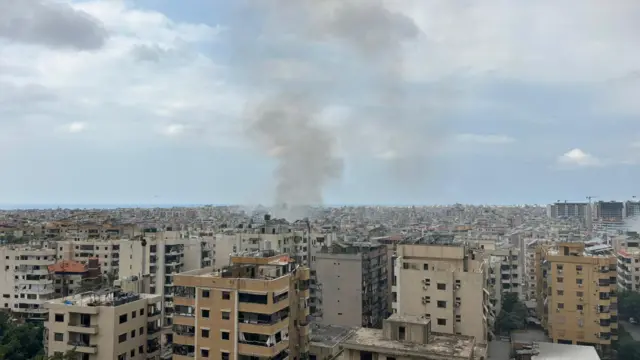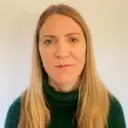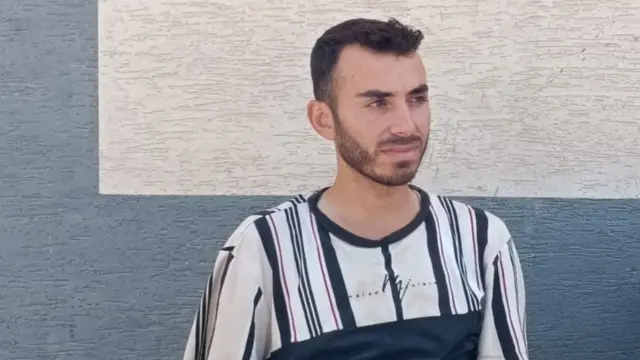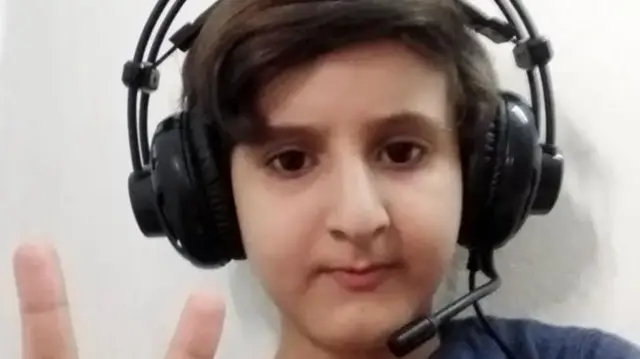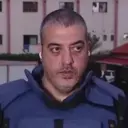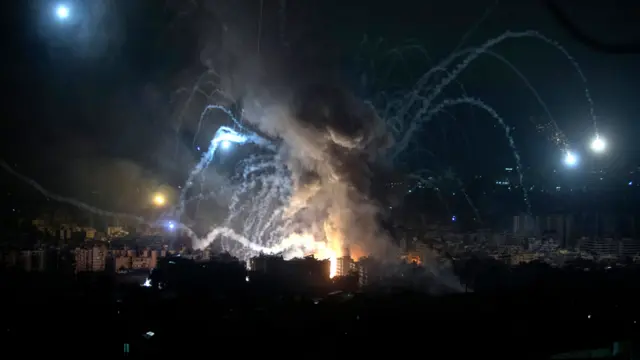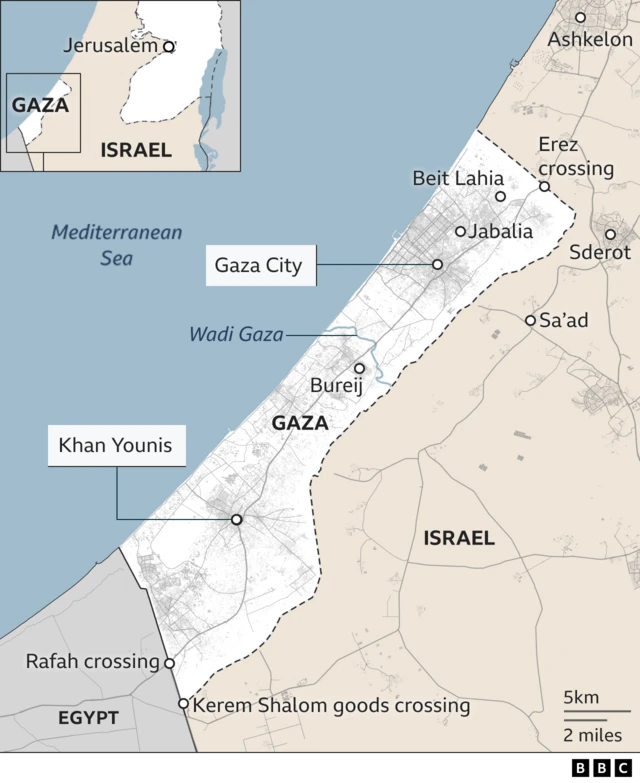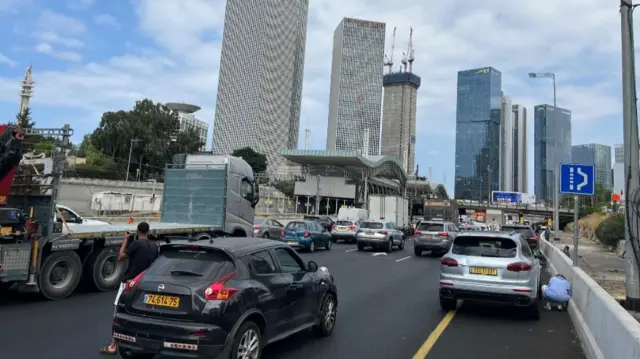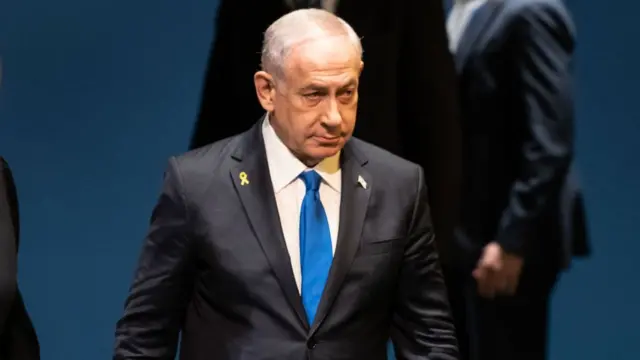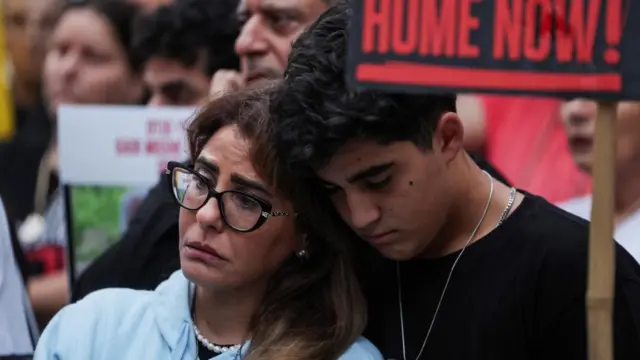First time city of Haifa has been hit in strike since 2006published at 13:24 BST 7 October 2024
 Nick Beake
Nick Beake
Reporting from northern Israel
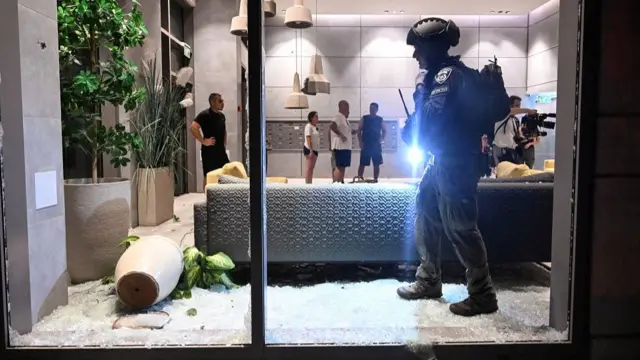 Image source, Reuters
Image source, ReutersAn Israeli police officer inspects the damage to a residential building caused by a rocket in Haifa
Israeli media are considering the implications of Hezbollah rockets hitting the country’s third largest city, Haifa, for the first time in nearly 20 years.
Haifa - a northern port city home to more than a quarter of a million people - is far outside the zone from which residents nearer the Lebanese border began to be evacuated last year.
Some commentators are expressing concern the Iron Dome defence did not intercept two of the five rockets reported to have been launched.
Eliran Tal, spokesman for the Haifa municipality, spoke to us a short time ago.
He confirms this was the first time the city has been targeted since the 2006 Lebanese war between Israel and Hezbollah which lasted a month.
Tal says two neighbourhoods were hit with eight people suffering minor injuries.
When asked about the Hezbollah claim they were aiming for a military site south of the city he says this is "an attack on civilian population".
The spokesman estimated that 95% of the population of Haifa were staying put.
He says: "This is a complex situation and with missile threats from the north. It is not an easy period of time, but we are strong . We went through a lot of tragedy like this - and I hope the IDF and the leadership will do their best to push the enemy far from the border."
That new mission - with the ground invasion into Lebanon - is intensifying but Hezbollah is fighting and firing back.
To the north east of Haifa - where we are this morning - we’ve heard the sound of more rockets being intercepted.

